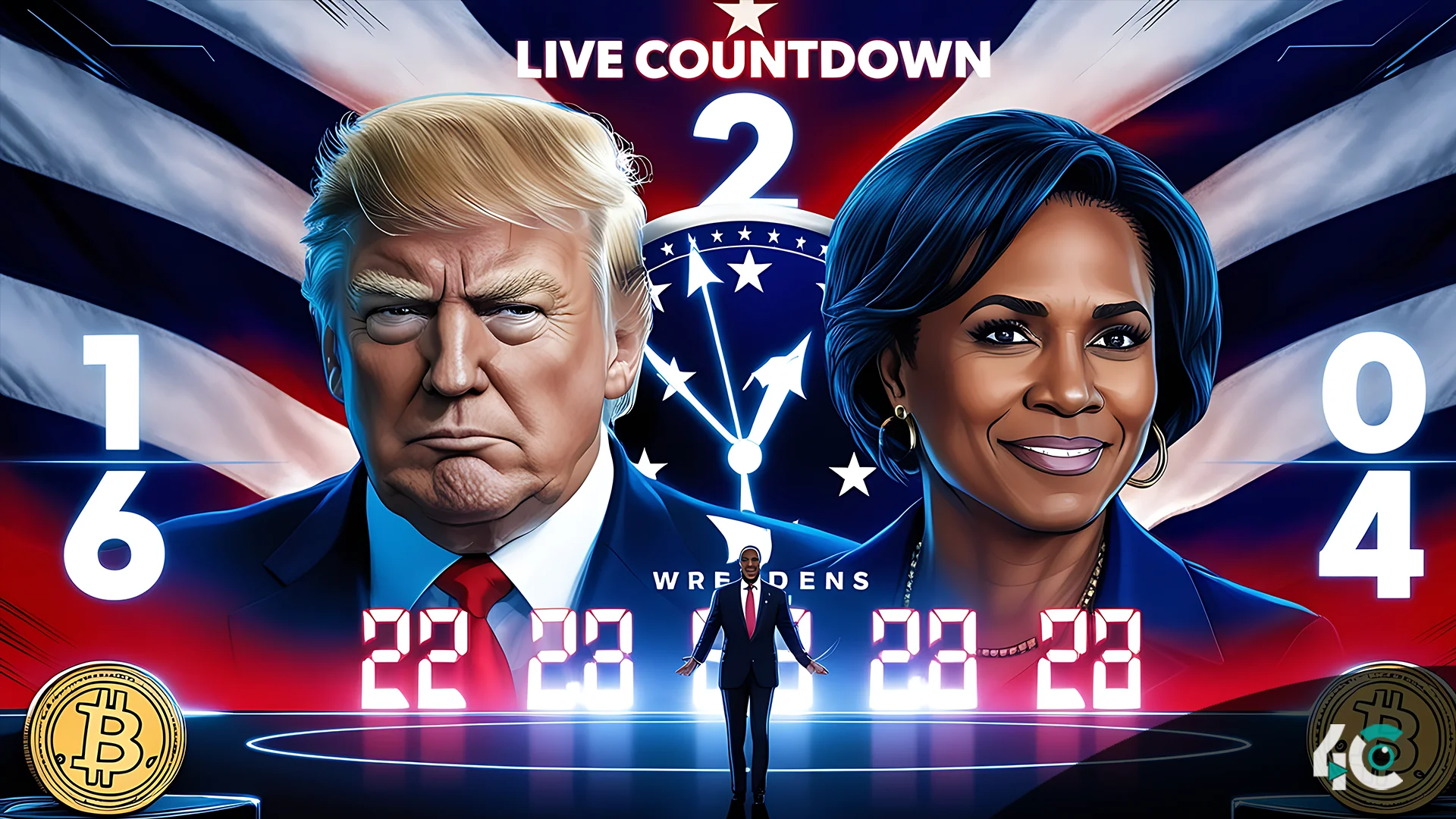The relationship between political outcomes and cryptocurrency legislation is becoming increasingly apparent as the US elections of 2024 draw near. Cointelegraph offers real-time updates on the election situation and how it affects the market for digital assets.
With a startling net loss of $541.1 million, Bitcoin exchange-traded funds (ETFs) saw their second-largest daily withdrawal in history on November 4. This occurred right before the election, indicating traders’ hesitancy as they prepared themselves for possible changes in the market based on the outcome of the vote. BlackRock’s iShares Bitcoin Trust was the only one of the 11 spot Bitcoin ETFs to have any inflows, with $38.4 million.
Over the previous week, Bitcoin’s value has decreased by roughly 4.6% to hover around $68,000 as the market prepares for uncertainty. As polls show a close contest between Donald Trump and Kamala Harris, both of whom have made major last-minute campaign pushes in crucial battleground states, traders are on edge.
While Trump campaigned hard in North Carolina, Pennsylvania, and Michigan, Harris held a rally in Pennsylvania, a state that was crucial to her hopes, on November 4, the last day of the campaign. With momentum on their sides, both candidates are fighting for the support of voters who are empowered to decide the outcome of the election.
Election officials have cautioned voters about potential delays and logistical problems, such as large queues and late polling place openings, as Election Day draws near. They stressed the need for patience because the final vote count will take time to determine and preliminary results will not accurately represent it.
The candidates’ positions on regulating cryptocurrencies have become important issues of discussion during the election. Trump, who previously voiced doubts about cryptocurrency, is now opposing the notion of a central bank digital currency and calling for the US to emerge as a major hub for digital assets. Harris, on the other hand, recently outlined her idea of a safe regulatory framework that encourages creativity in digital assets and other cutting-edge technology.
Depending on how the election turns out, the regulatory environment surrounding cryptocurrencies in the US may change dramatically. The incoming administration will likely shape the way federal agencies handle digital assets, while Congress plays a crucial role in establishing regulatory clarity.
As we track the impact of the US elections in 2024 on the cryptocurrency market and its trajectory, stay tuned for ongoing updates.
































